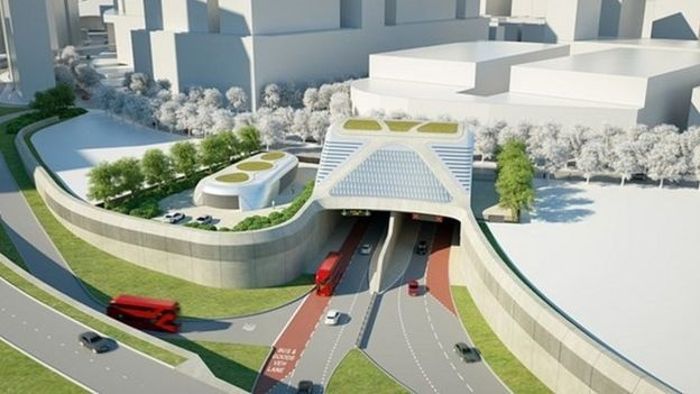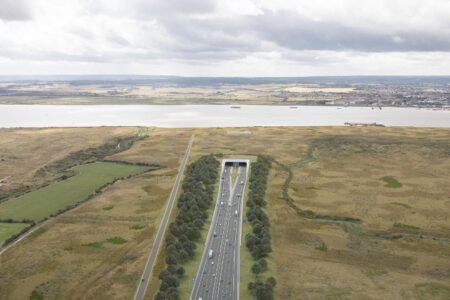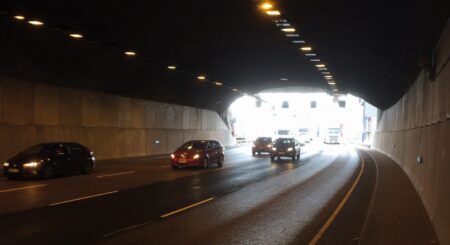Transport for London (TfL) has confirmed that the Riverlinx consortium, comprising of Aberdeen Standard Investments, BAM PPP PGGM, Cintra, Macquarie Capital and SK Engineering & Construction (SK E&C), has been nominated as the preferred bidder to build the Silvertown Tunnel; a new river crossing under the Thames in east London.
Set to open in 2025, the new tunnel will link the Greenwich Peninsula and the Royal Docks and effectively eliminate the serious congestion and reduce the associated environmental impacts caused by miles of standing traffic around the Blackwall Tunnel area. It will remove barriers for people in east London needing to cross the river for work or leisure as well as improve the reliability and resilience of the road network for local residents, commuters and businesses. The Blackwall Tunnel is the least reliable of London’s crossings and was closed more than 700 times in 2017/18. The lack of alternative crossings east of Tower Bridge has resulted in almost constant congestion and the approach roads having some of the highest levels of air pollution in the UK capital.
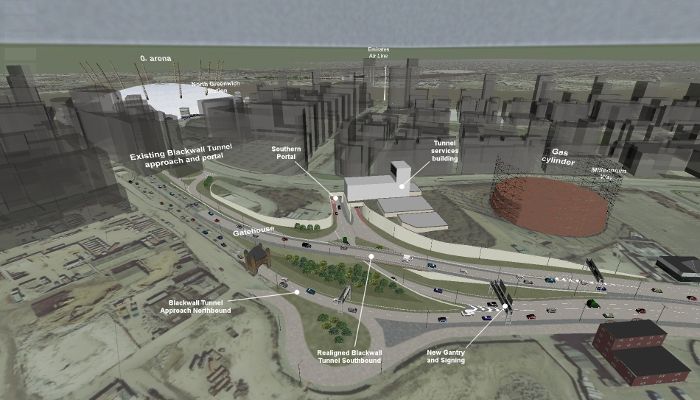
By effectively eliminating congestion, the new tunnel will deliver an overall improvement in air quality. A user charge or toll at both the new tunnel and the existing Blackwall tunnel will ensure overall traffic volumes and associated carbon emissions do not increase. At locations where TfL’s air quality modelling showed that there may be a small localized impact, mitigation will be delivered further to ensure any increase is minimized. Both tunnels and the surrounding area will also fall within the expanded Ultra Low Emission Zone (ULEZ), which will do more to improve air quality across all of inner London ahead of the new tunnel opening in 2025. The tunnel will also significantly improve cross-river public transport connections, with around 37 buses an hour in each direction.
The £1bn (US$1.26bn) project will be procured through a Design, Build, Finance and Maintain contract, meaning the financial risk for construction and an initial maintenance period will sit with the private sector rather than TfL. Throughout the summer, the consortium will work to confirm financial arrangements and set up the supply chain, and once these are agreed TfL will award them the contract for the project. Construction and maintenance costs will be covered via a user charge on both the new tunnel and the existing Blackwall Tunnel, which will also help to manage traffic demand and journey reliability and ensure predicted air quality improvements are delivered. The exact charge levels for various types of vehicles using the tunnel will be decided closer to the opening date.
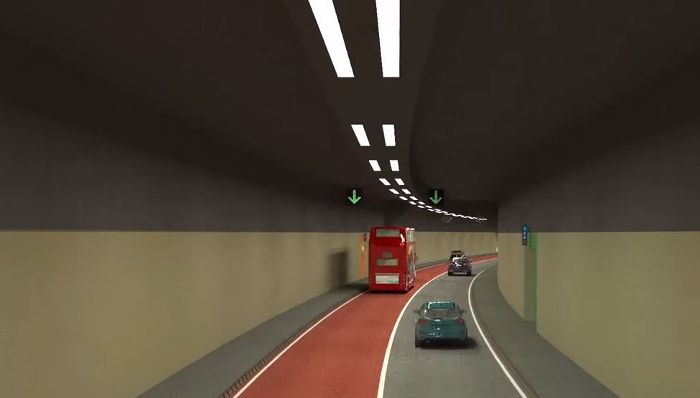
“The need for more river crossings in East London, to unlock growth and give residents and businesses better access to jobs and services, has been clear for decades,” noted Alex Williams, TfL’s director of city planning at TfL. “The Silvertown Tunnel, which is vital to support London’s economy, has been designed to resolve the existing congestion problem around Blackwall, improve overall air quality, and enable new cross-river bus routes to be introduced.”


